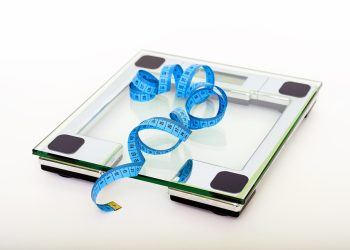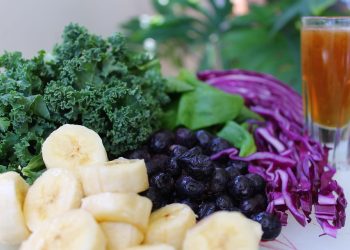Losing weight can feel overwhelming, filled with fad diets and unrealistic expectations. But sustainable weight loss isn’t about quick fixes; it’s about making gradual, healthy lifestyle changes that you can maintain long-term. This guide breaks down the process into manageable steps, focusing on lasting results rather than fleeting trends.
Understanding Sustainable Weight Loss
Sustainable weight loss is about losing weight at a healthy rate (usually 1-2 pounds per week) and keeping it off. It’s not just about the number on the scale; it’s about improving your overall health, energy levels, and relationship with food.
Why Quick Fixes Fail
Crash diets and extreme exercise regimens often lead to initial weight loss, but they’re rarely sustainable. They can also negatively impact your metabolism and mental health. These methods often result in:
- Muscle loss, which slows down your metabolism.
- Nutrient deficiencies.
- Increased cravings.
- A rebound effect, where you quickly regain the weight you lost.
- Feelings of deprivation and failure.
Step 1: Set Realistic Goals
Before you start, define your goals. Instead of aiming for a drastic weight loss in a short period, focus on smaller, achievable milestones. This will keep you motivated and prevent discouragement.
SMART Goals for Weight Loss
Use the SMART framework to create effective goals:
- Specific: Instead of “lose weight,” try “lose 1-2 pounds per week.”
- Measurable: Track your progress by weighing yourself weekly and measuring your waist circumference monthly.
- Achievable: Set goals that are challenging but realistic based on your current lifestyle and commitments.
- Relevant: Ensure your goals align with your overall health and well-being.
- Time-bound: Set a specific timeframe for achieving your goals, such as “lose 10 pounds in 10 weeks.”
Step 2: Mindful Eating and Portion Control
Becoming aware of your eating habits is crucial for sustainable weight loss. This involves paying attention to your hunger cues, the taste and texture of your food, and your emotional connection to eating.
Tips for Mindful Eating:
- Eat slowly: Savor each bite and chew your food thoroughly. This gives your brain time to register fullness.
- Eliminate distractions: Turn off the TV, put away your phone, and focus on your meal.
- Listen to your body: Eat when you’re hungry and stop when you’re satisfied, not stuffed.
- Identify emotional triggers: Are you eating because you’re bored, stressed, or sad? Find healthier coping mechanisms.
Portion Control Strategies:
- Use smaller plates and bowls: This can trick your brain into thinking you’re eating more.
- Measure your food: Use measuring cups and spoons to accurately portion your meals.
- Read food labels: Pay attention to serving sizes and calorie counts.
- Pre-portion snacks: Avoid eating directly from the bag or box to prevent overeating.
Step 3: Prioritize a Balanced Diet
A healthy diet is the foundation of sustainable weight loss. Focus on consuming whole, unprocessed foods that are rich in nutrients and low in calories.
Key Components of a Balanced Diet:
- Fruits and vegetables: Aim for at least five servings per day. They’re packed with vitamins, minerals, and fiber.
- Lean protein: Include sources like chicken, fish, beans, lentils, and tofu in your meals. Protein helps you feel full and supports muscle growth.
- Whole grains: Choose whole-wheat bread, brown rice, quinoa, and oats over refined grains. They’re higher in fiber and nutrients.
- Healthy fats: Incorporate sources like avocados, nuts, seeds, and olive oil into your diet. Healthy fats are essential for hormone production and overall health.
- Limit processed foods, sugary drinks, and unhealthy fats: These foods are often high in calories and low in nutrients.
Example Meal Plan:
- Breakfast: Oatmeal with berries and nuts.
- Lunch: Salad with grilled chicken or chickpeas and a vinaigrette dressing.
- Dinner: Baked salmon with roasted vegetables.
- Snacks: Apple slices with almond butter, Greek yogurt with berries, or a handful of nuts.
Step 4: Incorporate Regular Physical Activity
Exercise is crucial for weight loss and overall health. Aim for at least 150 minutes of moderate-intensity aerobic activity or 75 minutes of vigorous-intensity aerobic activity per week, along with strength training exercises at least two days per week.
Types of Exercise:
- Cardio: Activities like walking, running, swimming, and cycling burn calories and improve cardiovascular health.
- Strength training: Lifting weights or using resistance bands helps build muscle mass, which boosts your metabolism.
- Flexibility exercises: Stretching and yoga improve flexibility and reduce the risk of injury.
Tips for Staying Active:
- Find activities you enjoy: You’re more likely to stick with exercise if you find it fun.
- Start slowly and gradually increase the intensity and duration of your workouts.
- Incorporate activity into your daily routine: Take the stairs instead of the elevator, walk during your lunch break, or do some gardening.
- Find an exercise buddy: Working out with a friend can help you stay motivated.
Step 5: Stay Hydrated
Drinking enough water is essential for overall health and can also aid in weight loss. Water helps you feel full, boosts your metabolism, and helps your body function properly.
How Much Water Should You Drink?
Aim for at least eight glasses (64 ounces) of water per day. You may need more if you’re active or live in a hot climate.
Tips for Staying Hydrated:
- Carry a water bottle with you and refill it throughout the day.
- Drink water before, during, and after meals.
- Choose water over sugary drinks like soda and juice.
- Eat water-rich fruits and vegetables like watermelon and cucumbers.
Step 6: Prioritize Sleep
Getting enough sleep is often overlooked, but it plays a crucial role in weight management. Sleep deprivation can disrupt hormones that regulate hunger and satiety, leading to increased cravings and overeating.
How Much Sleep Do You Need?
Most adults need around 7-9 hours of sleep per night.
Tips for Improving Your Sleep:
- Establish a regular sleep schedule: Go to bed and wake up at the same time each day, even on weekends.
- Create a relaxing bedtime routine: Take a warm bath, read a book, or listen to calming music.
- Make sure your bedroom is dark, quiet, and cool.
- Avoid caffeine and alcohol before bed.
- Limit screen time before bed: The blue light emitted from electronic devices can interfere with sleep.
Step 7: Manage Stress
Stress can lead to unhealthy eating habits and weight gain. When you’re stressed, your body releases cortisol, a hormone that can increase appetite and promote fat storage.
Stress Management Techniques:
- Practice relaxation techniques: Meditation, deep breathing, and yoga can help reduce stress levels.
- Spend time in nature: Being outdoors has been shown to lower stress hormones.
- Connect with loved ones: Social support can help you cope with stress.
- Engage in hobbies you enjoy: Doing things you love can help you relax and unwind.
- Get regular exercise: Exercise is a great stress reliever.
Step 8: Track Your Progress and Stay Accountable
Monitoring your progress and staying accountable can help you stay motivated and on track. Keep a food journal, track your exercise, and weigh yourself regularly.
Ways to Track Your Progress:
- Food journal: Record everything you eat and drink, including portion sizes and calorie counts.
- Fitness tracker: Track your steps, activity levels, and sleep patterns.
- Weight tracker: Weigh yourself weekly and record your weight.
- Measurements: Measure your waist circumference monthly to track changes in body composition.
Ways to Stay Accountable:
- Find an accountability partner: Share your goals with a friend or family member and check in with them regularly.
- Join a support group: Connecting with others who are on a similar journey can provide encouragement and motivation.
- Work with a registered dietitian or personal trainer: They can provide personalized guidance and support.
Step 9: Be Patient and Persistent
Sustainable weight loss takes time and effort. Don’t get discouraged if you don’t see results immediately. Be patient, persistent, and focus on making small, gradual changes that you can maintain over the long term.
Dealing with Setbacks:
- Don’t beat yourself up: Everyone has setbacks. The important thing is to learn from them and get back on track.
- Identify the triggers: What caused you to stray from your plan?
- Adjust your plan: If your plan is too restrictive, make some adjustments to make it more sustainable.
- Focus on the positive: Celebrate your successes, no matter how small.
Conclusion
Sustainable weight loss is a journey, not a destination. By following these steps and making gradual lifestyle changes, you can achieve your weight loss goals and maintain them for the long term. Remember to be patient, persistent, and kind to yourself. Focus on improving your overall health and well-being, rather than just the number on the scale. With dedication and consistency, you can achieve a healthier, happier you.
Frequently Asked Questions (FAQs)
Q: How quickly should I expect to lose weight?
A: A healthy and sustainable rate of weight loss is 1-2 pounds per week. Rapid weight loss can be unhealthy and often leads to weight regain.
Q: Do I need to cut out all my favorite foods?
A: No, you don’t need to completely eliminate your favorite foods. Focus on moderation and portion control. You can still enjoy your favorite treats occasionally as part of a balanced diet.
Q: What if I have a bad day and overeat?
A: Don’t beat yourself up! One bad day won’t derail your progress. Just get back on track with your healthy eating habits the next day.
Q: Is it okay to skip meals?
A: Skipping meals can lead to overeating later and can disrupt your metabolism. It’s better to eat regular, balanced meals and snacks throughout the day.
Q: What kind of exercise is best for weight loss?
A: The best type of exercise is the one you enjoy and can stick with consistently. A combination of cardio and strength training is ideal for burning calories and building muscle mass.
Q: Do I need to count calories?
A: Counting calories can be helpful for understanding your energy intake, but it’s not necessary for everyone. Focus on eating whole, unprocessed foods and practicing portion control. If you’re not seeing results, tracking your calories for a short period may provide valuable insights.
Q: What if I hit a weight loss plateau?
A: Plateaus are common. When you hit a plateau, try making some changes to your routine, such as increasing the intensity or duration of your workouts, adjusting your calorie intake, or trying a new type of exercise. Be patient and persistent, and don’t give up!
Q: Should I consult a doctor before starting a weight loss program?
A: It’s always a good idea to consult your doctor before starting any new weight loss program, especially if you have any underlying health conditions.
Q: How important is sleep for weight loss?
A: Very important. Lack of sleep can disrupt hormones that regulate appetite and lead to cravings for unhealthy foods. Aim for 7-9 hours of quality sleep each night.
Q: What are some healthy snack options?
A: Healthy snack options include fruits, vegetables, nuts, seeds, Greek yogurt, and hard-boiled eggs. Choose snacks that are high in protein and fiber to help you feel full and satisfied.












